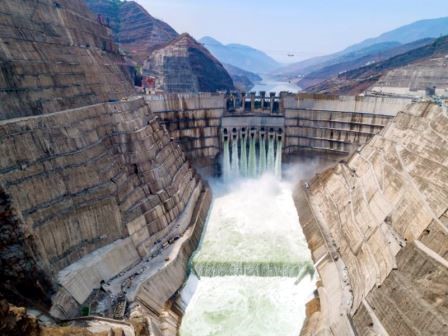

The Paris Agreement is a landmark in the multilateral climate change process because, for the first time, a binding agreement brings all nations together to combat climate change and adapt to its effects, as stated by UNFCCC. The main objective of the Paris Agreement is to enhance the international response to the threat posed by climate change by limiting the rise in global temperature this century to well below 2 degrees Celsius and pursuing measures to further restrict the temperature increase to 1.5 degrees Celsius.

The aluminium industry is among the most high-energy intensives in the global manufacturing sector. China is the world's leading aluminium producer, contributing to around 55-60 per cent of the worldwide output. The world's second-largest economy is also taking strict measures to reduce carbon emissions. In its steps to curb emissions, the nation's aluminium sector is gradually shifting the maximum production to the Yunnan province, a famous region for healthy hydropower supply.
Presently, due to severe water shortages that have impeded the region's ability to generate hydroelectric power, Yunnan province in southern China is reducing metal production.
According to our source from the Yunnan province, a major aluminium producer informed its investors by stating, "The capacity for hydroelectric electricity generation is low, and the power supply situation is dire. The province asked us to cut back on our energy usage."
Since last fall, the province has asked aluminium smelters to reduce output by 10 per cent in September, then by 20 per cent, and 40 per cent most recently.
The Yunnan province contributes around 10 per cent of China's total aluminium smelting capacity. However, this needs to be noted that the production cutback has the potential to have far-reaching ramifications across a wide range of industries.
A severe water shortage is to blame for the energy crisis. Hydroelectric power generates roughly 80 per cent of the power in Yunnan province. A 2022 heat wave and accompanying dry spell substantially harmed a generation.
Cheap power has traditionally been Yunnan's competitive advantage over other areas, luring energy-intensive industry processes like smelting aluminium. An estimated 30 per cent of the electricity used in the entire province is used by smelters. Despite rising demand, hydroelectric power remains the province's primary energy source.
Responses








